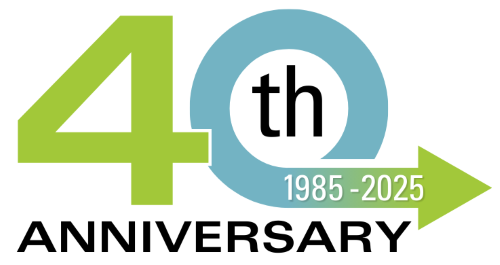Top 5 Questions About Paper Shredding
DataSafe has been in the shredding business for awhile now. (35 years, actually, but who’s counting!) Over the years, our clients have asked us a lot of questions. With information security increasingly becoming a cause of concern, we’ve compiled the top 5 questions we get asked in the hopes we can help others.
#1: Does my business need scheduled service? Can’t I just call when the papers have piled up?
Yes and no! We pride ourselves on working with our clients to ensure that their needs are fully met. If your business generates a low volume of sensitive materials, then sure, just give us a call when you need us to stop by. However, we strongly urge you to consider a few things. Where are you storing documents and data? It’s important that these documents are stored in a secure location, not a storage closet or an empty office. You don’t want to store documents in a spot that all of your employees, contractors, or the general public can access. Plus, what’s your clean desk policy? Papers shouldn’t be piling up for weeks before they get sent to a storage location. Make sure that papers go to a secure spot at the end of each work day.
Remember, holding on to sensitive documents and data is a liability. Each day that this data is on the premise brings potential risk. If you feel confident that your systems can handle this risk, then call us as-needed. However, if you don’t have a good system in place for storing secure documents, then we recommend you schedule regular, on-going shredding service. We can come as often as you need, which reduces your liability. Destroyed data is data that can’t come back to haunt you!
#2: What kind of papers should my business shred?
We get this one a lot. Some things are more obvious than others. Social security numbers? Shred ’em! Banking statements? Shred ’em! Here are a few less obvious types of papers you should consider shredding as well.
- Client contracts: You should always play it safe when it comes to client information. The embarrassment of your client knowing that you carelessly handled their business information could be a liability for you, as your reputation might suffer. Additionally, your competitors could use the contract information to poach your clients with a better deal. Contracts also contain details of how your business works, which your competitors could use to their advantage.
- Reports: Long reports filled with graphs and charts might not seem like a thrilling steal but make no mistake: your common business reports are filled with important information that you don’t want getting out. Financial data, proprietary information, and other important internal data can be contained in your business reports. If you’re in doubt, shred it!
- Ideas and product development: If you’re developing new products or services, or even simply just brainstorming, make sure that your internal ideas don’t get made public. Competitors could use this information by creating similar products. Even if you don’t think your ideas are that interesting or important, consider the embarrassment of having your internal ideas out in the public. Your business would look unprofessional at best. Ensure you don’t suffer a public embarrassment that could cost you future business!
#3: Can’t my business just use an in-office shredder to destroy documents?
Um, no. Sorry! There are many reasons why you don’t want to be messing around with a shredder. First of all, time is money. Office shredders are tedious and slow, which means that one of your employees has to spend their time shredding instead of performing their actual job. This also means that your employees are collecting and viewing sensitive documents, which leaves you vulnerable. Secondly, office shredders generally shred paper into strips that can actually be put back together by a determined criminal. Finally, office shredders can’t shred your digital media! You still need to manage your old computers and hard drives.
#4: Does my business really need an official Clean Desk Policy?
Yes! A Clean Desk Policy outlines the expectations and procedures that a company has regarding the storage and disposal of sensitive documents and data. This may feel unnecessary if you don’t currently have a policy in place but look around. Are there stacks of papers on desks? Are old computers sitting in a closet? Does your business utilize temporary contractors or interns? Is there a lot of foot traffic outside your business? Do you get a lot of visitors from delivery people or maintenance? Once you start looking, you’ll begin to recognize how vulnerable your information is. Learn more about a Clean Desk Policy!
#5: Isn’t deleting the files from a hard drive or computer sufficient?
Simply wiping digital media isn’t enough to ensure security. Deleting a file and emptying the recycling bin might seem like a good way to get rid of data. It’s gone and you can’t find it, right? No! Unfortunately, the data is still there, and while the average person might not know how to attain that data, criminals do. Plus, even if it was easy to remove your data, you still have to dispose of the media. Disk drives and computers can’t be thrown in the trash – they have to be recycled. So, why not do both – DataSafe can completely destroy your media and recycle it afterwards.
There you have it. Our top 5 most commonly asked questions. Have a question not listed here? Feel free to contact us!

Get Your Quote
"*" indicates required fields

